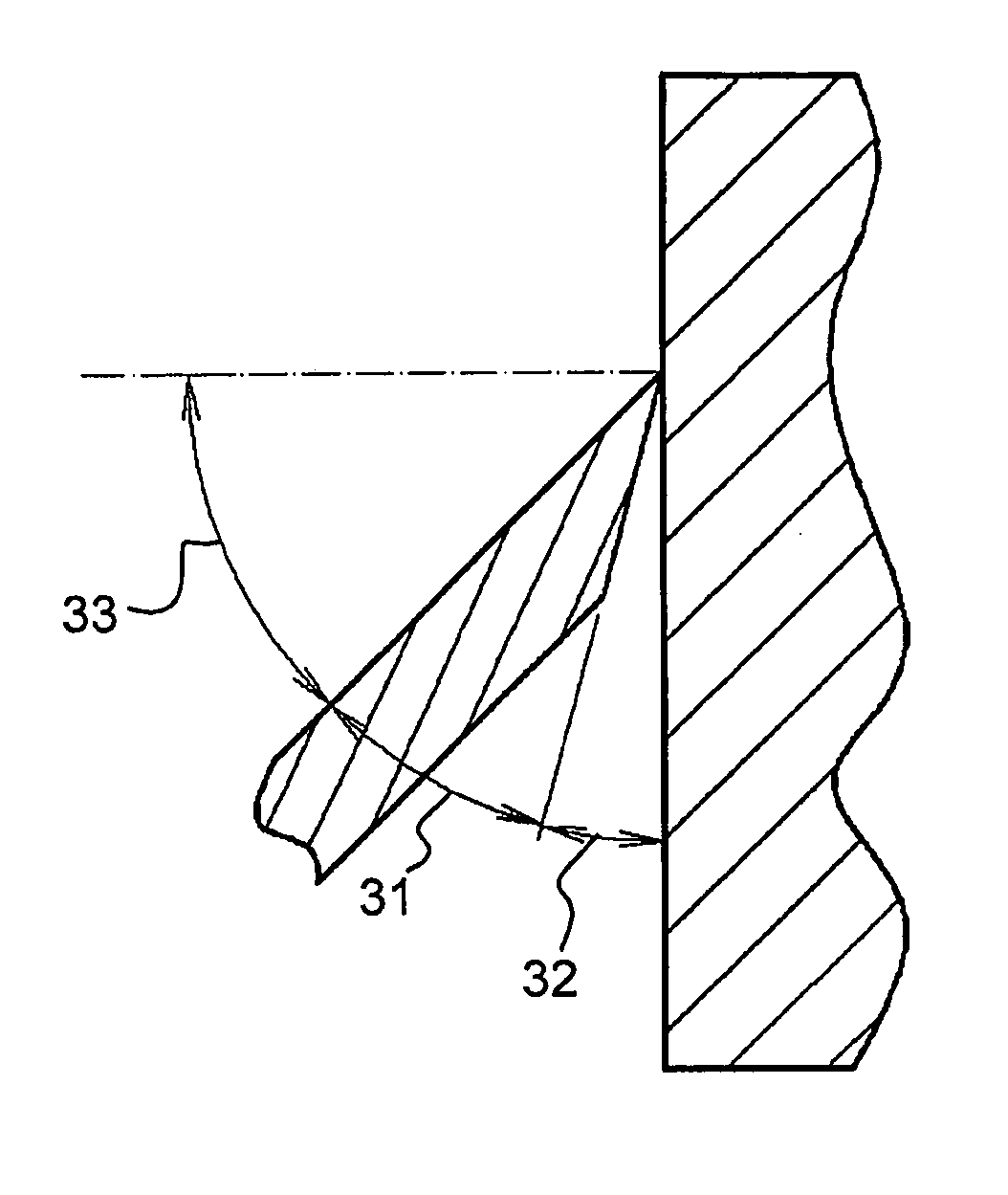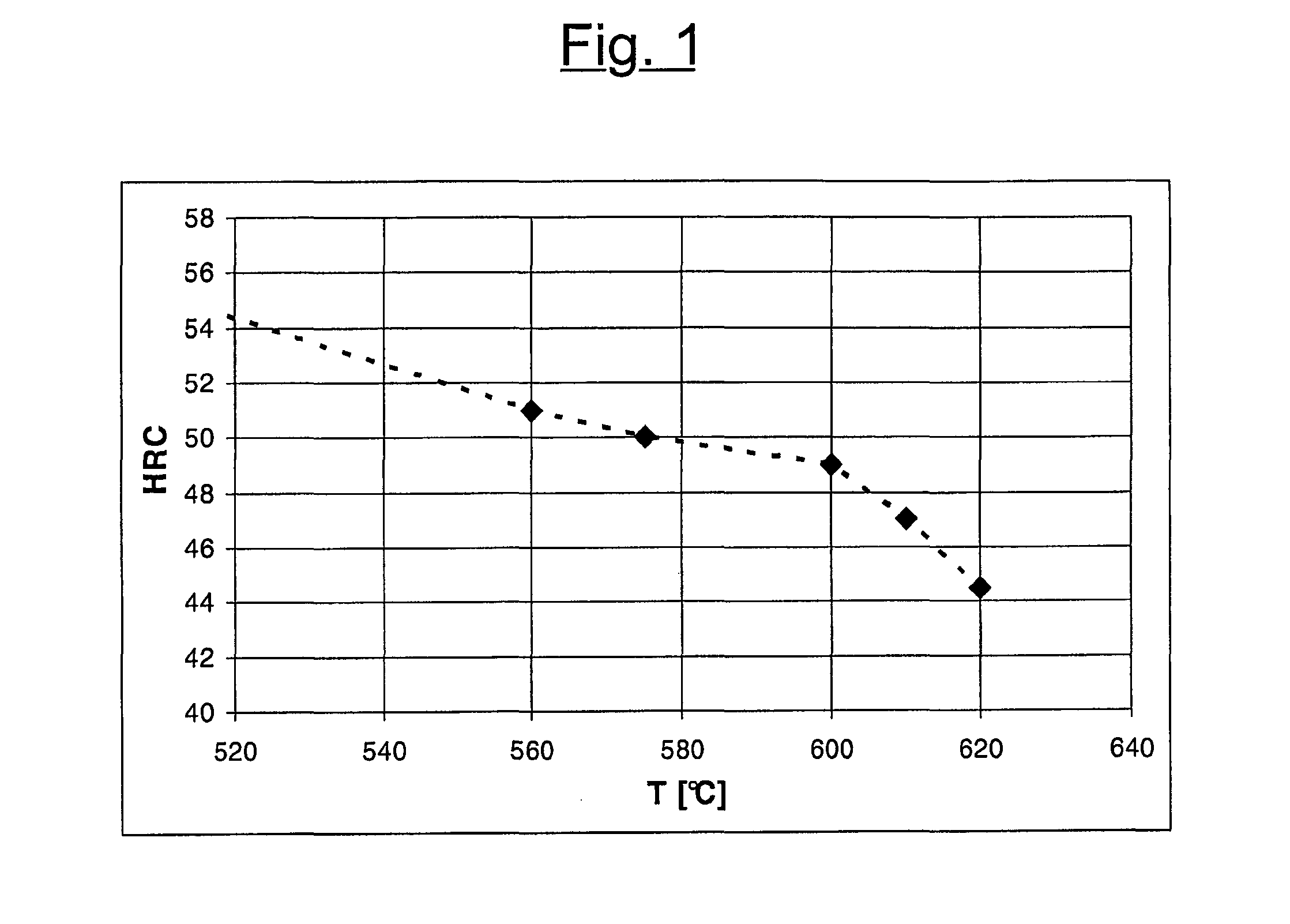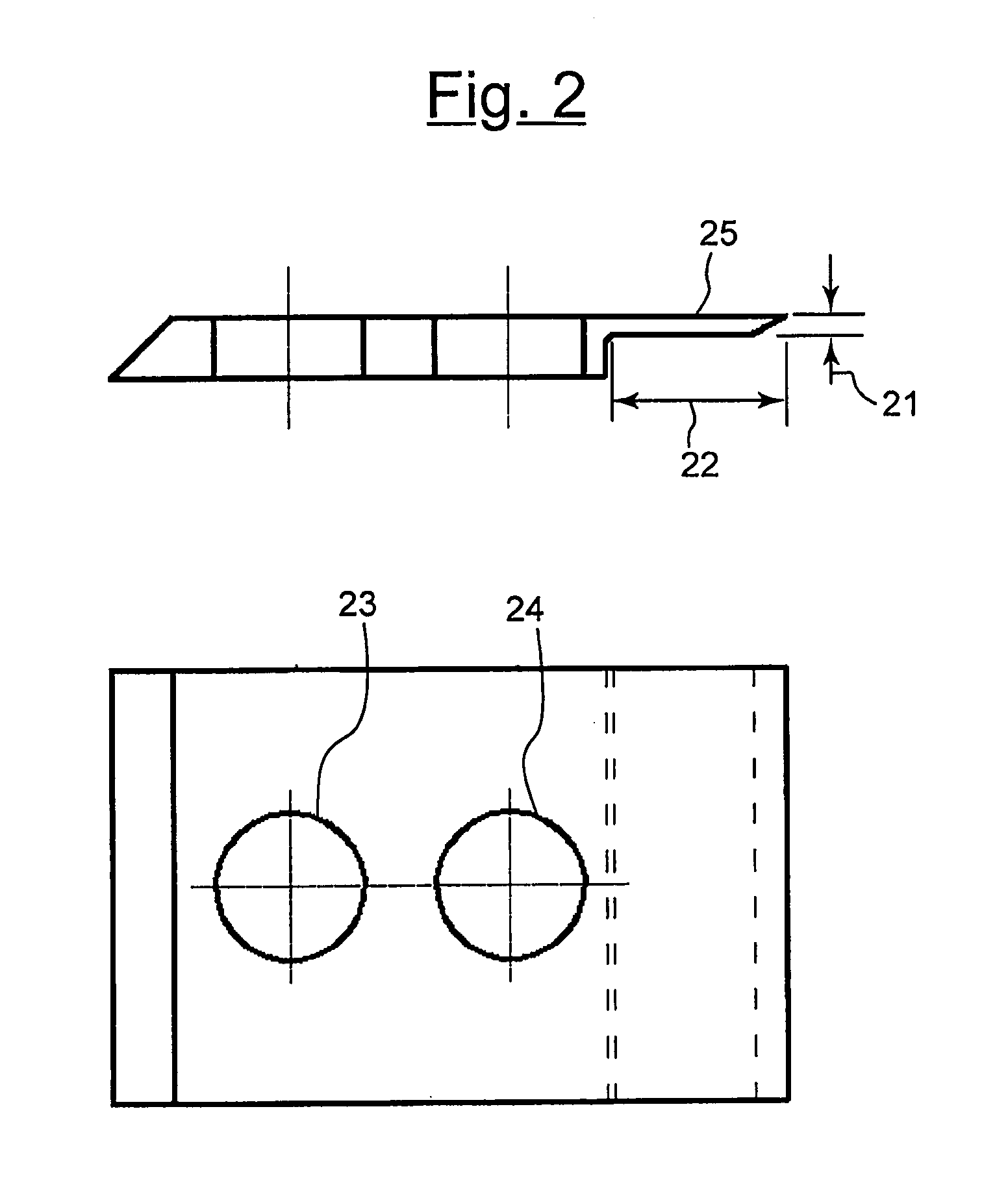Granulator blades with a high wear resistance and sharpening method thereof
- Summary
- Abstract
- Description
- Claims
- Application Information
AI Technical Summary
Benefits of technology
Problems solved by technology
Method used
Image
Examples
example 1a
[0054]A sheet made of Vanadis 10 material, produced by Bohler-Uddeholm, is processed to obtain knives having the shape illustrated in FIG. 2.
[0055]The hardness, measured before and after the processings, is equal to 58 and 56 Rockwell degrees, scale C.
[0056]The knives are inserted, kept apart, in a muffle, flushed with a nitrogen stream. The muffle kiln is turned on and heated at a rate of 10° C. / minute up to 500° C., and at 2° C. a minute up to the prefixed tempering temperature equal to 620°. This temperature is kept constant for three hours, the muffle is then switched-off and the knives are left to cool slowly (at about 5° C. per minute). When the temperature reaches 400° C. they are extracted and left to cool in calm air until room temperature is reached. The hardness, measured after the thermal treatment, is 44.5 Rockwell degrees, scale C.
[0057]The knives are assembled on the hub of the granulator and sharpened under these conditions: rotation rate 1,500 rpm; force acting on e...
examples 1d-1g
[0061]Example 1A was repeated on knives coming from the same sheet but with thermal tempering at different temperatures. The resulting hardness in Rockwell degrees, scale C, is expressed in Table 1. The subsequent Table 2 indicates the granulation quality obtained and the minimum and maximum wear rate registered during the sharpening phase and during the granulation phase.
TABLE 1TEMPERATUREHARDNESSEXAMPLE(° C.)(HRC)1A62044.5COMP. 1B—58COMP. 1C—561D560511E600491F610471G57550COMP. 2—58
example 2
[0062]Example 1A was repeated, but during the sharpening, the flow-rate of the cooling water is periodically regulated, in order to alternate period equal to 30 seconds, at full flow-rate (850 l / h) and a spray velocity estimated of 16 m / s, with periods of 10 seconds, during which the water flow-rate is reduced to ⅛ of former value. The duration of the sharpening is equal to 60 minutes.
PUM
| Property | Measurement | Unit |
|---|---|---|
| Temperature | aaaaa | aaaaa |
| Temperature | aaaaa | aaaaa |
| Fraction | aaaaa | aaaaa |
Abstract
Description
Claims
Application Information
 Login to View More
Login to View More - R&D
- Intellectual Property
- Life Sciences
- Materials
- Tech Scout
- Unparalleled Data Quality
- Higher Quality Content
- 60% Fewer Hallucinations
Browse by: Latest US Patents, China's latest patents, Technical Efficacy Thesaurus, Application Domain, Technology Topic, Popular Technical Reports.
© 2025 PatSnap. All rights reserved.Legal|Privacy policy|Modern Slavery Act Transparency Statement|Sitemap|About US| Contact US: help@patsnap.com



